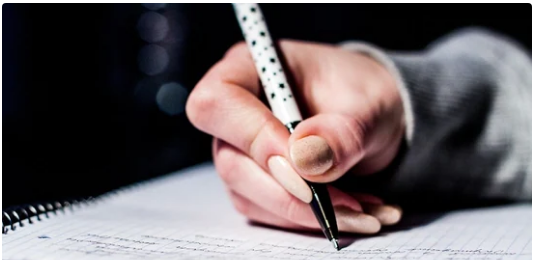How Writing by Hand Improves Learning and Memory?
In today’s world, digital tools have become an essential part of everyday life for students and professionals alike. Laptops, tablets and smartphones make our tasks more efficient, allowing us to access countless resources with a click. They allow us to type & work faster, organize information easily and stay connected with ease. While this digital convenience is undeniable, it has a hidden downside, they often come at the cost of reduced memory retention and focus.
Digital tools, while convenient, are impacting students by reducing their ability to deeply engage with information. Typing, by nature tends to be more mechanical, is often a passive task. When we type, especially in a classroom or meeting, we tend to transcribe information mindlessly. This passive learning approach limits comprehension and retention. Instead of digesting or summarizing ideas, we simply copy them down word-for-word, leading to shallow processing of the material.
Studies show that multitasking reduces the brain’s ability to focus and retain information. This cognitive overload, over time, weakens concentration and memory retention. As a result, many students and professionals struggle with a shortened attention span and difficulty remembering important details.
When it comes to our brain’s ability to focus and retain information, Handwriting, a simple, traditional method, proves to be a powerful tool for boosting memory, concentration and retention.
A study by Princeton University by Mueller and Oppenheimer (2014) found that students who took handwritten notes retained more information and performed better on tests than those who typed their notes.
When writing by hand, we’re more likely to summarize and rephrase information, which helps in better understanding and remembering what we’re learning. Handwriting engages multiple areas of the brain, particularly those involved in learning and memory. In contrast to typing, handwriting is a slower and more intentional activity that engages the brain in a completely different way.
Here’s how handwriting stands out as a simple yet powerful solution for Focus and Retention:
- Handwriting creates a more focused environment, fostering mindfulness and presence.
- Handwriting stimulates creativity and critical thinking, allowing individuals to connect ideas more freely as the process of writing slows down the thought process, allowing for deeper reflection and idea generation.
- By engaging multiple cognitive processes, handwriting has been shown to significantly boost memory and concentration.
- This reflective process & an invaluable tool further strengthens cognitive pathways related to focus, learning and problem-solving in a distracted world.
- Improved Memory Multiple studies, including one from Princeton University, have shown that handwritten notes are more effective for memory retention.
- Enhanced Focus and Reduced Distractions : Handwriting naturally eliminates digital distractions.
- Active Learning and Better Understanding When we write, the brain’s motor memory is activated, helping us remember the content better. This encourages active learning, helping the brain to better understand and internalize complex ideas which is particularly helpful for students.
In a world dominated by digital technology, handwriting remains a powerful tool for enhancing focus, memory, creativity and solidify learning. While typing on digital devices may be faster, it often leads to shallow learning and fragmented attention.
Whether you’re a student trying to retain more information or a professional looking to improve focus, taking the time to write by hand can offer significant cognitive benefits. Students and individuals can incorporate handwriting into their daily routines.
For students and professionals alike, balancing digital tools with traditional methods like handwriting offers a practical solution for boosting memory and cognitive engagement, helping us achieve better results in learning and productivity.
By returning to the practice of Handwriting, we can better engage our brains, improve memory retention and foster deeper concentration.
Disclaimer: Information & the views expressed in this article reflect the author’s personal understanding, learning and interpretation.
Jyotsnaa G Bansal is a Reiki Grandmaster, Author, Numerologist, Researcher, Counselor, Crystals & Spiritual Guide, Dowsing & Switchwords Practitioner.







